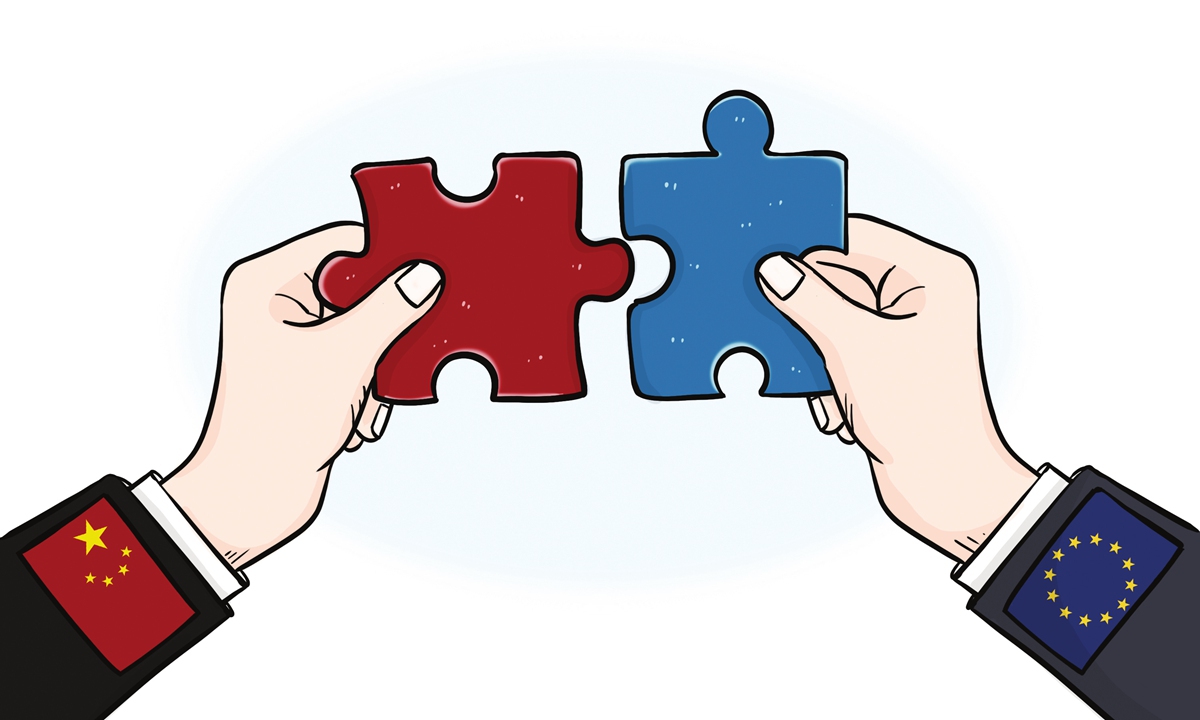
China EU relations
While the interaction between China and Europe is frequent and the atmosphere is warming, the complexity of the bilateral relationship is also becoming more apparent. German Chancellor Olaf Scholz's recent visit to China demonstrated the essence of mutually beneficial cooperation between China and Germany as well as China and Europe, and China has held talks and political consultations these days with Hungarian minister of foreign affairs and the director general of political and security affairs of the French Foreign Ministry, maintaining strategic communication on issues of common concern. China-Europe relations have maintained a momentum of stability and progress. However, the European Union's sudden raid of Chinese companies' offices in Europe, and probe into China's market access of medical devices procurement, as well as the false information about "Chinese espionage threats" emerging in some European countries, are fueling a wave of smearing under the "China threat" banner on multiple fronts, from trade frictions to espionage accusations.
To a certain extent, this reflects Europe's performance on China-related issues in recent years. Whenever the China-Europe relationship is improving and stabilizing, there are always significant disruptive forces emerging from within Europe at almost the same time. For example, when forces hoping to develop practical cooperation with China push bilateral relations forward, other interest groups or anti-China forces under the guise of "reducing dependence on China" would create trouble for China in trade. When China and Europe enhance political mutual trust through communication and interaction, there are forces that use unfounded claims of "Chinese spies" and "Chinese infiltration" to stoke fear among the European public. This is related to the different interest groups within Europe and their expressions of demands, and is also a tangible manifestation of the increasing diversification of European politics.
Overall, in the past two years, Europe's perception of China has been moving toward rationality and returning to European strategic autonomy. When the "triple positioning" of China as a "partner, competitor, and systemic rival" was first introduced, the European side emphasized more on China as a "systemic rival," with prevailing talk of "decoupling" and "de-risking" causing a huge shock on the China-Europe relationship. After two years of practice and development, although there are still conflicts and contradictions in Europe's perception of China, it has realized that China and Europe cannot decouple, nor engage in ideological systemic confrontation, but should instead focus on economic, technological, and other areas that are more in line with Europe's own strategic interests.
This is not only the outcome of communication and interaction between China and Europe, but also Europe's reflection on the costs and benefits of following a confrontational strategy toward China in various aspects, such as economy and geopolitics, after aligning with the US. The typical case of the Dutch chip machine giant ASML is a good example. After the Dutch government decided to restrict ASML's exports to China in accordance with US requirements last year, the incoming new chief Christophe Fouquet expressed his primary focus on Chinese customers. Following the US policy toward China may be easy, but the actual costs and consequences that Europe will bear are probably best understood by business leaders like Christophe Fouquet who have to pay the price in real terms. As he has previously stated, it's a matter of time until people realize that "the only way to be successful in semiconductors is through cooperation." This not only applies to semiconductors, but also electric vehicles and solar panels.
However, in the current political environment in Europe where different interest groups are competing for influence, it is important to recognize that there are strong and stubborn forces in Europe that seek to push China-Europe relations toward comprehensive competition or even hostility. These forces occasionally hope to create disturbances within Europe, undermine the foundation of China-Europe cooperation, and provoke a reaction from China. Most of these people claim to be advocating for "European independence," but in reality, they are weakening Europe's independence and harming Europe's long-term interests. It should be noted that in times like these, Europe should be highly vigilant and control these negative forces that could damage China-Europe relations, maintain strategic autonomy, and avoid falling into the trap of viewing China as an adversary rather than a partner, or a challenge rather than an opportunity. There is indeed competition between China and Europe in some industries, but this is not a reason to engage in pan-politicization, which will only harm the respective interests of China and Europe.
There are no fundamental conflicts of interest or geopolitical strategic contradictions between China and Europe, and our common interests far outweigh differences. A German politician has said that China and Europe do not need to be best friends, but they can truly cooperate and achieve a win-win situation. Cultivating and nurturing positive expectations for mutually beneficial cooperation between China and Europe is a good thing for China-Europe relations, as it ensures that the constructive aspects of China-Europe relations in global strategic stability far outweigh the destructive aspects, which is also beneficial for the world.




